Graham Gouldman - Interview
by Lisa Torem
published: 3 / 5 / 2014

intro
10cc frontman and influential English singer-songwriter Graham Gouldman speaks to Lisa Torem about his lengthy career and forthcoming UK acoustic tour
The prolific Graham Gouldman has been turning out hit songs since the 1960s. And those songs altered the course of pop music. Watch videos of Peter Noone, of Herman’s Hermits, croon the gentle ‘No Milk Today’ or ‘Listen People’ and see how his playful teen idol image lifts as he morphs into a mature, introspective man. Gouldman’s songs have a way of transforming people. Gouldman, inspired by the chord progression of ‘The House of the Rising Sun’ penned ‘For Your Love,’ which was a hit for the Yardbirds. When the Hollies recorded the poetic stanzas of ‘Bus Stop’, which Gouldman wrote about a girl, he saw on his way to his job at a clothing store every day, international teens identified with the heartfelt story about a young man winning over his crush in the pouring rain “under my umbrella.” But Gouldman was just getting started in his brilliant career. Gouldman worked with musicians Kevin Godley, Eric Stewart and Lol Creme at Strawberry Studios. When Gouldman was asked by bubblegum producers Jerry Kasenet and Jeff Katz of Super K Productions to write a slew of catchy teen confections, he ultimately agreed to write them and enlisted his buddies to record the tunes so that he could fulfill a three-month contract. Songs were farmed out to the likes of Ohio Express, Crazy Elephant and Freddie and the Dreamers. Gouldman often cites this undertaking as a low ebb in his creative trajectory, even though he and his colleagues became efficient producers in the process and their successful time writing and recording jointly illustrated that they could take things to the next level. They had also produced hit albums for Neil Sedaka, so why not form their own band? Gouldman’s time with British 1970's band 10cc garnered ‘The Wall Street Shuffle’, ‘Art for Arts Sake’ and 'I'm Mandy, Fly Me'. It was ‘I’m Not in Love’ which became their second number one hit in the UK in 1975 – their first being ‘Rubber Bullets’ in 1973 - and No. 2 in the US. The contemporary mix, lush harmonies and bittersweet message were so impressive that Mercury Records bankrolled it for a million dollars contract. That line-up split in 1976 citing musical gridlock. Stewart and Crème went on to construct more experimental music and major video production, although Stewart later expressed regrets about the dissolution of the band at that time. Gouldman and Eric Stewart kept songwriting and performing as a duo, eventually expanding the group, and having a third number one hit with the Jamaican reggae romp ‘Dreadlock Holiday’ in which Gouldman proclaims, “I don’t like reggae/I love it.” Even today Gouldman, now the only original 10cc member, keeps the 10cc discography alive as he tours major cities in the UK, performing songs from all eras in a “stripped-down” fashion. New fans are proclaiming that Gouldman is “a foundation stone in British pop.” In the 1980s, Gouldman produced for the Ramones and made multiple albums with the late Andrew Gold, the writer of ‘Lonely Boy’: 'Magnetic Heaven' (1986), 'American English' (1987), and 'A Hundred Thousand in Fresh Notes' (1989). Their performing duo was entitled Wax. Their musical relationship was so successful that Gouldman once asked Gold to join 10cc, but Andrew was an American and the logistics were too complex and he was already booked. After Andrew’s sudden death in 2011, Gouldman continued to honour their strong partnership by writing about their times together on his 2012 solo album, 'Love and Work'. Gouldman still collaborates internationally and maintains a positive attitude about his songwriting partners; finding something golden and unique in every encounter. This year is an incredibly busy one: travelling with the 10cc touring band and also performing his 'Heart Full of Songs' live show with Mike Stevens and Ian Hornal. Somehow he found the time for this Pennyblackmusic interview. I was pysched because I still have my weathered sheet music of ‘I’m Not in Love’ leaning against my piano for good luck. PB: When you were younger, you and your dad enjoyed beautiful cantorial melodies and later he helped you coin the first few lines of ‘Bus Stop’. GG: Yes, he did. PB: And not every son heeds the advice of the older generation. What made you so receptive? GG: He was a great guy. I loved him and he was clever and a talented man, so I would have been an idiot not to listen to him. PB: You wrote a ballad ‘Ready to Go Home’ about your dad. What was that like for you? GG: Well, it was written with the late Andrew Gold. We were talking about when a parent passes on and how that affects you, and their legacy and what they leave behind, and just trying to come to terms with it really. We just started writing the song based on what we’d been talking about. Some of it lyrically is quite abstract and some of it is more specific, but it encompassed the way I was feeling about my dad. We both felt very emotional about it. PB: Let’s talk more about Andrew in a few minutes. In Graham Nash’s memoirs, he talked about listening to ‘Bus Stop’ and ‘Look Through Any Window’ in your living room. What was going through your mind at that point? GG: Wow. What was going through my mind? I think, if my memory serves me, that the Hollies had already recorded ‘Look Through Any Window’ and were looking for some other songs. Graham came by my house, but the Hollies were such a massive band in the 1960s. They were right up there with the other major bands. To have them come in your house – at that point I had had a couple of hits as a songwriter – nevertheless you could be a successful songwriter and you could still be a massive fan of somebody and feel a little bit intimidated by them. They were lovely. They were charming, and it felt very comfortable, and I was delighted that I was associated with them. PB: What do you think were the songwriting ingredients that attracted groups like Herman’s Hermits, Jeff Beck and the Yardbirds? GG: I don’t know. You write a song and its has its own legs, so to speak. Obviously before you can finish a song there has to be something about it you like, so you’re writing something you like and it’s a nice coincidence if somebody, another artist, likes it enough to record it, and then that artist's public like it enough to buy it and it becomes a hit. I’ve never found a way of predicting it. I’ve had feelings about songs, and I’ve been right and I’ve been wrong in those feelings. It’s very hard to predict what will be a hit and what won’t, and it’s a bit of a useless exercise anyway because it’s going to happen one way or another whatever you think. PB: Do you initially get started with a title or melody? GG: It varies. I’ve had titles in my head. I’ve had bits of melodies. I’ve had a few words. Song titles are quite good to get because you can kind of work backwards from the song title and create something, but it varies. There is no strict way. PB: A lot of music historians suggest that you and Eric Stewart had a separate musical vision than Kevin and Lol. Did you see that phenomenon happening in 10cc? GG: I think Eric and I were more commercially minded. Kevin and Lol were a bit more avant garde, but the chemistry between the four of us created something wonderful because we would become editors of each others’ songs and take a kind of ownership of each others’ songs. We would treat them as our own for the good of the band, and that worked brilliantly. PB: You guys did something else uniquely. You traded off instruments and vocals unlike some of the bands at that time that featured one lead vocalist or lead guitarist. Did you find that beneficial? GG: It was definitely beneficial. The reason for doing it was that we wanted to have the best man for the job. If one of us played a guitar solo that suited that particular track better than somebody else, then we’d do it and the same with the vocals. We’d all have a go trying a vocal if we fancied our chances, and then the other three would decide yeah or nay whether that would happen. I think it worked very well. We had three number one singles with all different vocalists on them. In one way, you could say that’s great we did the job; we were there just to serve the song. On the other hand, people might have had an identity problem with us because it was like listening to a different band on each record. PB: 10cc was known for its versatility and, speaking of that, you played everything from football music, bubblegum, Caribbean-style ballads like ‘Dreadlock Holiday’ and heartbreaking ballads. Occasionally artists who covered your songs misinterpreted the arrangement or mood. Did you as artists ever want or have the authority to limit the usage of your songs? GG: You have the right to limit the usage if there’s going to be some major change in the lyric – I think that’s really all that happens - or being used in a commercial, say, for alcohol or a cigarette commercial. But generally we never had an out and out problem with that, at all. It’s a great compliment if someone takes some of your music and uses it in a commercial or re-records it. There have been some amazing versions as well as some dreadful ones of our songs, but I wouldn’t stop anything. If someone sees our song in a certain way, if it’s that bad, no one is going to hear it anyway. PB: ‘I’m Not in Love’ was such a beautifully layered song, production wise. How do you feel about playing it acoustically? GG: This is interesting because there are only certain songs that one can do, particularly the 10cc songs because they relied so much on production, but really at the heart of ‘I’m Not in Love’ is a song and when we do it in a stripped down way you can hear the song for what it is - although it’s enhanced by the production on the record and the choir that accompanies it – when you hear it with just the guitar I hope you’re going to say, "Well, there’s a great song." It was a great song anyway in the beginning and good songs usually inspire great productions. I find that they are easy to record because you don’t have to make something sound; you’re not forcing it to sound better than it actually is, and ‘I’m Not in Love’ is a very good example of that. I mean I’ve performed it with just one guitar and one voice and people love it because the song is good. PB: Some people think Queen was heavily influenced by 10cc; especially ‘Bohemian Rhapsody’. GG: Yes, because we recorded ‘One Night in Paris’ which is a very long piece, from the 'Sheet Music' album in 1975, which was before Queen’s ‘Bohemian Rhapsody’. I’m sure they were influenced by it. PB: You and Andrew Gold wrote many albums together as Wax and afterwards as well. You dedicated your solo album 'Love and Work' to Andrew, and penned ‘Daylight’ about him. GG: The song ‘Daylight’ was written with a writing partner of mine, Chris Brave. We had this chorus (Laughs). I didn’t know what to write around it. We got off the subject of what we were going to do with the song and started talking about Andrew. and then we thought, "Wouldn’t it be nice to actually write about Andrew himself?" I think it worked beautifully. PB: So what was the process you and Andrew engaged in? GG: It was pretty much the same as with Eric Stewart or anybody else. We’d generally just sit down and mess around for a little bit until something, unless somebody’s got an idea but that very rarely happened. I find it’s always better in a way to come to the table with a blank sheet because then you come up with something that was born in the presence of the other person, so to speak, so it becomes. Say I come up with something and my partner goes, "I don’t think that’s any good," but you can be messing around and they can go, "What was that you just did?" "Oh, I don’t think it’s anything really." "Well, do it again, but change this chord," and suddenly you’re off on this trail of writing a song and hopefully if it has its own legs and it will become something great. PB: So it sounds like you’re a big fan of collaborating? GG: I like writing on my own and I like collaboration. In a way collaboration is easier because there’s a commitment almost that you have to come up with the goods and its interesting because I find I’m a bit of a chameleon when it comes to songwriting, so I can be writing in Nashville with a country pop songwriter and I’m perfectly comfortable with that. Other writers bring out certain things in you that might not normally come out if you were writing on your own. PB: Speaking of Nashville, people have varied reactions about the process. GG: Well, I can’t say it’s been massively successful. although there was a song I wrote with a guy called Gary Burr, who is a wonderful writer – a song called ‘Dancing Days’ that’s been recorded by a couple of people but I can’t say it’s been great for me commercially. But I do enjoy going there. I like the fact of being in a place that’s totally dedicated to music, and also the fact that you can be walking down the street going into any bar or club and the guitarist will blow your socks off. It’s a common thing and everybody’s a great player. PB: But I’ve been told that sometimes artists don’t know who they’ll be matched up when they collaborate. GG: Sometimes it works and sometimes it doesn’t as with any collaboration if you’re put together with people. Generally I found in my career that I very rarely come away with nothing. "You know what, this isn’t working at all.I don’t think it’s worth continuing with." That very rarely happens. PB: You have some exciting news. You’re going to be inducted into The Songwriter’s Hall of Fame in New York City. Have you prepared your speech? GG: No. I’m just waiting to hear them say, no more than thirty seconds or whatever. I’ve got the general jist of what I’m going to say, but I haven’t actually written it down yet. I’m very very happy about it. I feel very honoured and I’m looking forward to the ceremony. PB: You’ve got your 'Heart Full of Songs' tour coming up, which will take up most of May. What’s in the set list? GG: Well, there are actually three of us on the stage. We’re going to be doing songs from four decades of songwriting of mine. The majority of songs I hope they’ll know. I’ll do some new songs from 'Love and Work', including ‘Daylight’ because that’s the sort of song I think people will get right away. I’m not going to do songs that need to be listened to three or four times until you actually get it. I’ll do songs that I’d written for other artists in the 60s, 10cc songs, songs that I wrote with Andrew, of course, and various other little nuggets that I‘ve found from the past, which I’ve never performed before. I’ll be playing acoustic guitar; six-string and twelve-string, Ian Hornell will be playing guitar and ukulele, and Mike Stevens plays keyboards, sax, penny whistle, accordion, bass guitar and we’ve got a keyboard as well. We’ll sing obviously as well. PB: Will you continue touring with the current 10cc? GG: Absolutely. We’ve got a lot of work after this month, and it’s all to do with 10cc for the rest of this year and next year as well. PB: What songs have been most requested? GG: Everyone wants to hear ‘I’m Not in Love’ because that’s probably one of the most famous songs and ‘The Things We Do for Love’ both which we’re going to play. In some of the 'Heart Full of Songs' shows, people will not necessarily know the songs that I wrote for the Yardbirds and the Hollies because people know the artists more than the actual songwriter, which I understand so I hope it’s a nice surprise when they hear those songs and go, "Wow, I didn’t know you wrote that." That always happens. PB: My final question: If you could co-write a song with any other songwriter, living or dead, and it can be more than one person, who would it be? GG: What a great question. I think I’m going to have to say Paul McCartney. He’s been such an influence and, of course, the Beatles, but that’s a whole other story. PB: Is there anything else you’d like to add before you go? GG: I’d just like to be able to bring A Heart Full of Songs tour to America at some point and play some places, and maybe when I’m in New York in June I can make some enquiries about that. PB: Thank you.
Band Links:-
https://grahamgouldman.info/https://en-gb.facebook.com/GrahamGouldman/
https://twitter.com/grahamgouldman
https://en.wikipedia.org/wiki/Graham_Gouldman
Picture Gallery:-
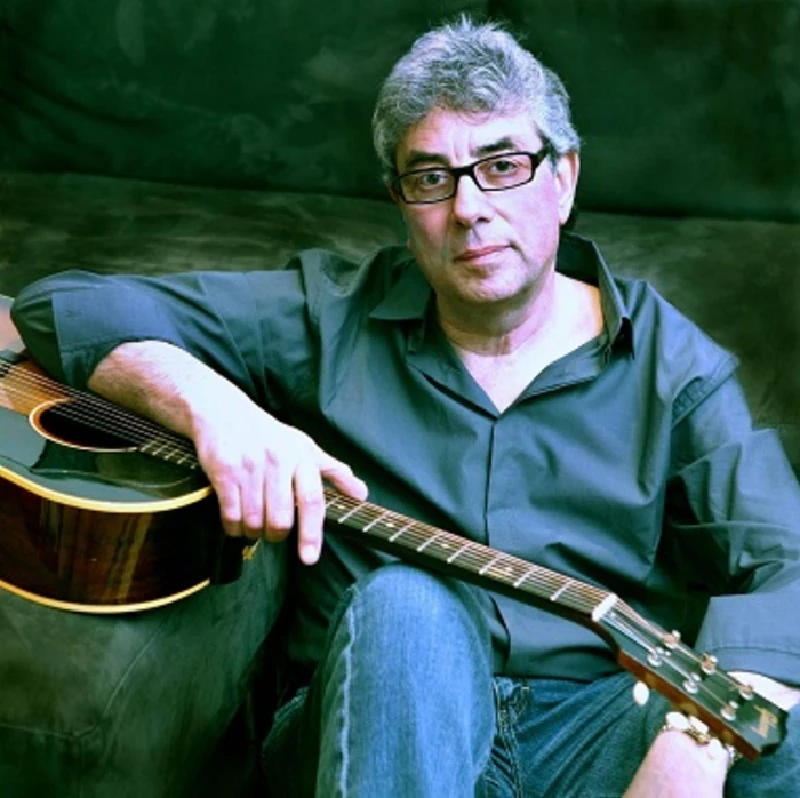
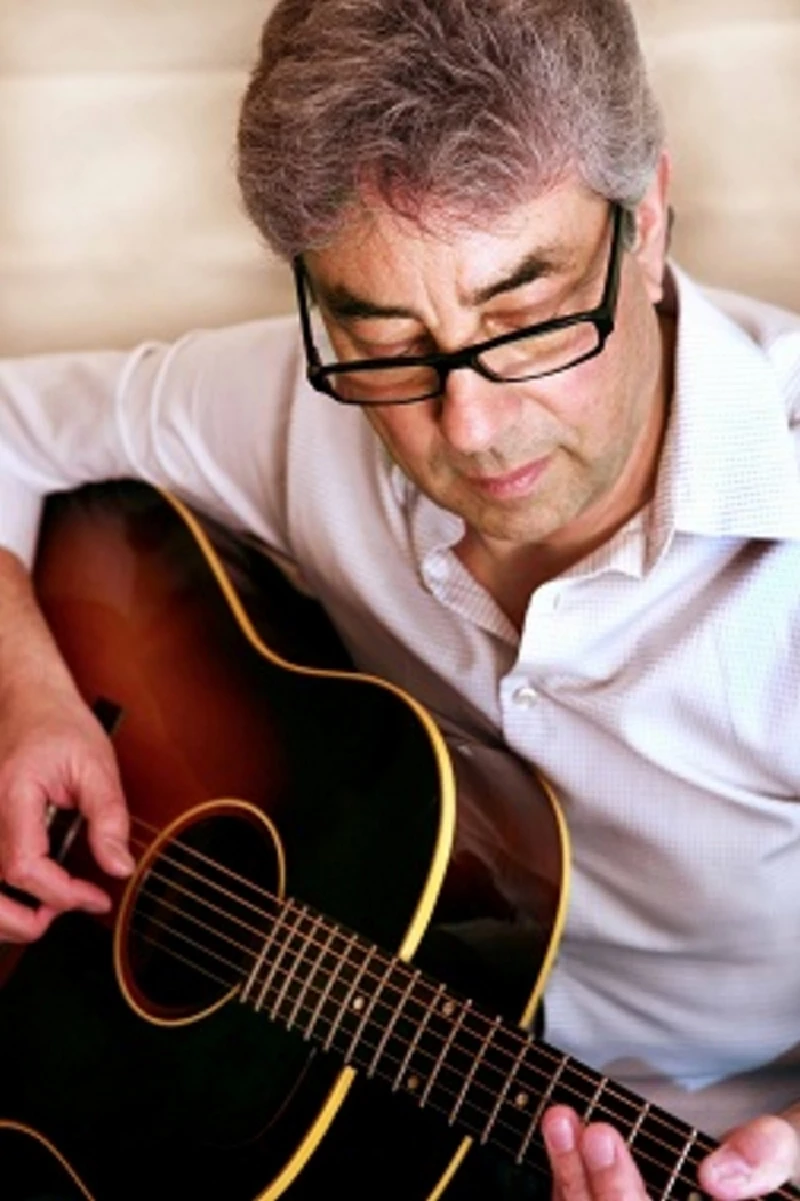
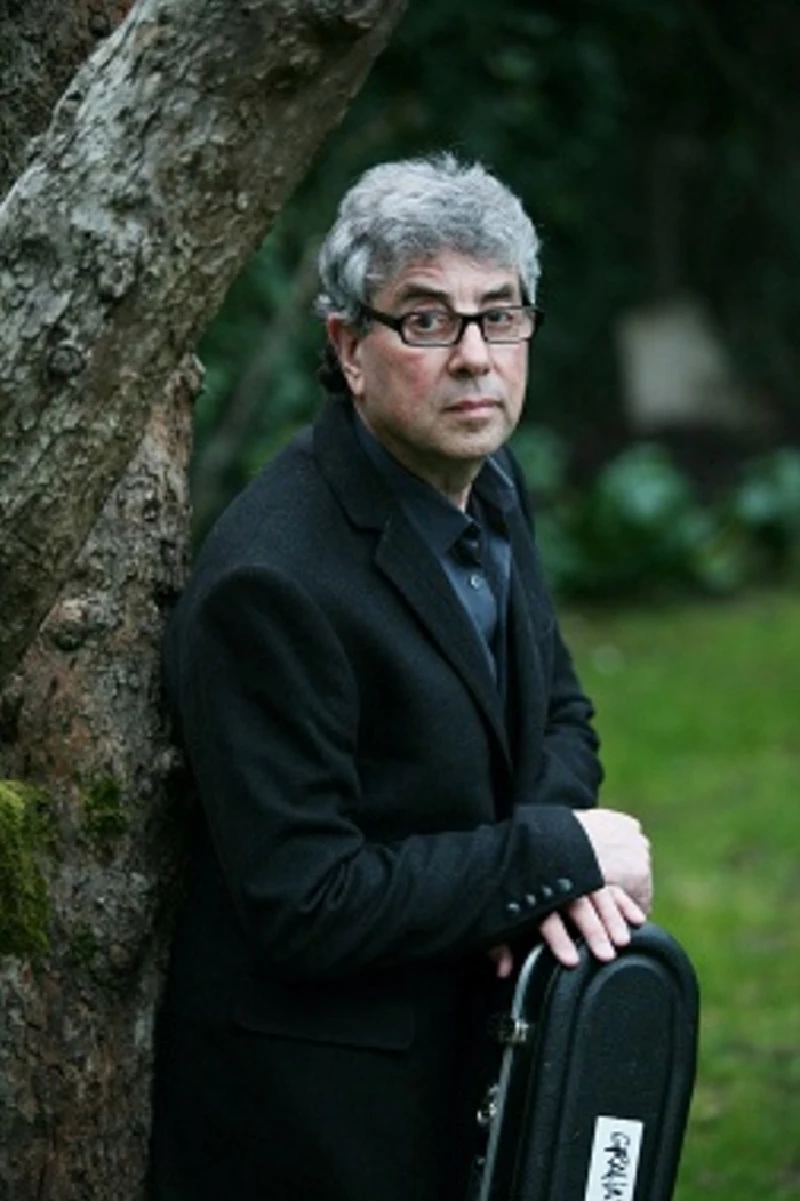
interviews |
|
Interview (2020) |
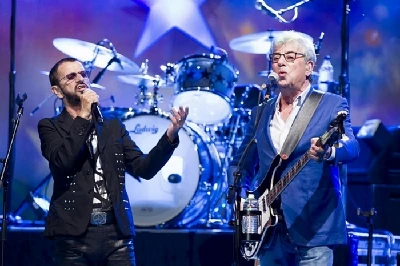
|
| Lisa Torem speaks to award-winning British songwriter Graham Gouldman about his upcoming UK tour and new album, ‘Modesty Forbids’, his first full studio album in eight years. |
photography |
|
Photoscapes (2021) |
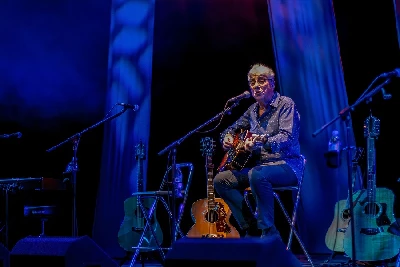
|
| Andrew Twambley photographs 10cc's Graham Gouldman with his acoustic Heart Full of Songs four-piece at a the Royal Northern College of Music. |
most viewed articles
current edition
Spear Of Destiny - InterviewRobert Forster - Interview
Fiona Hutchings - Interview
When Rivers Meet - Waterfront, Norwich, 29/5/2025
Carl Ewens - David Bowie 1964 to 1982 On Track: Every Album, Every Song
Brian Wilson - Ten Songs That Made Me Love...
Chris Wade - Interview
Pistol Daisys - Waterfront, Norwich, 29/5/2025
Credits - ARC, Liverpool, 17/5.2025
Nils Petter Molvaer - El Molino, Barcelona, 24/4/2025
previous editions
Heavenly - P.U.N.K. Girl EPBarrie Barlow - Interview
Boomtown Rats - Ten Songs That Made Me Love....
Dwina Gibb - Interview
Oasis - Oasis, Earl's Court, London, 1995
Sound - Interview with Bi Marshall Part 1
Manic Street Preachers - (Gig of a Lifetime) Millennium Stadium, Cardiff, December 1999
Beautiful South - Ten Songs That Made Me Love...
Trudie Myerscough-Harris - Interview
Serge Gainsbourg - Ten Songs That Made Me Love...
most viewed reviews
current edition
Peter Doolan - I Am a Tree Rooted to the Spot and a Snake Moves Around Me,in a CircleGarbage - Let All That We Imagine Be The Light
Vinny Peculiar - Things Too Long Left Unsaid
Little Simz - Lotus
John McKay - Sixes and #Sevens
Suzanne Vega - Flying With Angels
HAIM - I Quit
Morcheeba - Escape The Chaos
Vultures - Liz Kershaw Session 16.06.88
Billy Nomates - Metalhorse
Pennyblackmusic Regular Contributors
Adrian Janes
Amanda J. Window
Andrew Twambley
Anthony Dhanendran
Benjamin Howarth
Cila Warncke
Daniel Cressey
Darren Aston
Dastardly
Dave Goodwin
Denzil Watson
Dominic B. Simpson
Eoghan Lyng
Fiona Hutchings
Harry Sherriff
Helen Tipping
Jamie Rowland
John Clarkson
Julie Cruickshank
Kimberly Bright
Lisa Torem
Maarten Schiethart